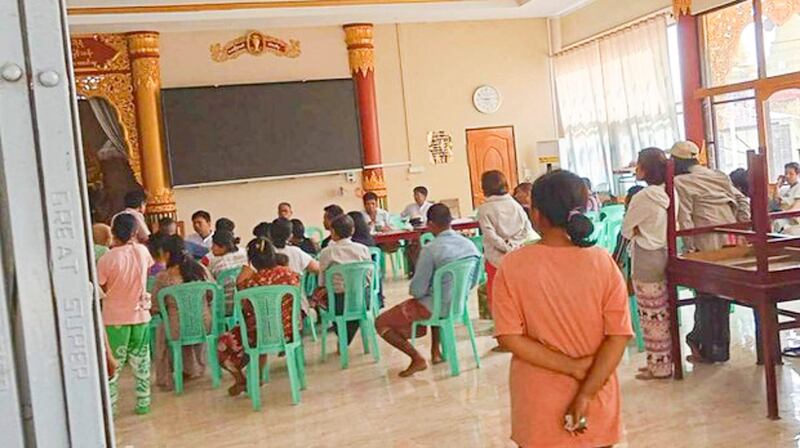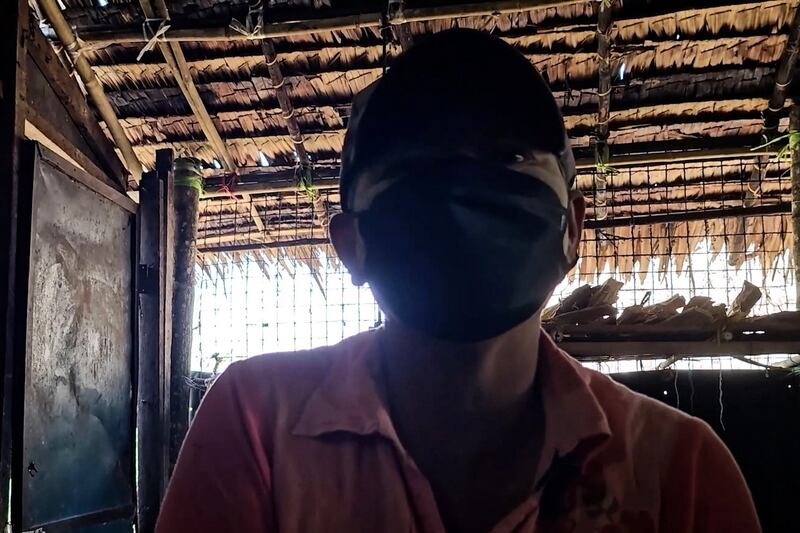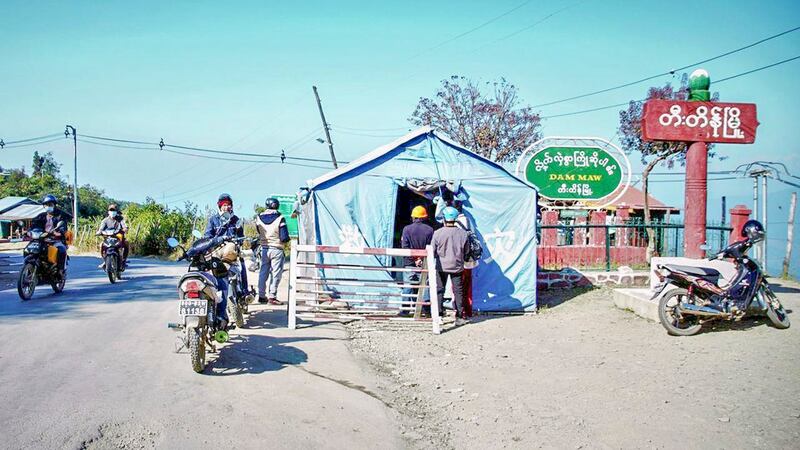Myanmar’s military draft has created a cottage industry of corruption as administrators across the country offer eligible citizens a way out of fighting in exchange for a price, Radio Free Asia has learned.
Desperate to shore up its dwindling ranks amid mounting losses to rebel groups and mass surrenders, the junta enacted a conscription law that came into effect in April, three years after the military seized power in a coup d’etat.
Now anyone aged 18-35 can be forced to serve for up to five years – and local administrators in charge of carrying out the draft are enriching themselves in the process.
“Eligible people … are entered into a lottery and the names that are selected have to serve,” said a resident of eastern Mandalay region’s Pathein Gyi township who, like others interviewed, asked not to be identified for security concerns.
“We’re told that if we don’t want to go, we can pay them [the administrators] money to arrange for a replacement,” she said, adding that the option to pay a bribe is not publicly disclosed, but common knowledge.
Sources RFA Burmese spoke to said bribes to avoid service range from 500,000 kyats (US$240) to a staggering 50 million kyats (US$23,830), depending on the area and draft quota requirements. Even the low end of the range represents several times the monthly income of the average worker in Myanmar.
A young man from Hinthada township in the southern region of Ayeyarwaddy told RFA that he was even approached by the regional governor to pay money to avoid service after he was selected in a lottery.
"He told me that I could make substitutions with others, but I’d need to pay him 3 million kyats (US$1,430) for this,” he said. “So, I gave him the money.”
Fleeing and assassinating
The conscription law has prompted thousands of youth to flee Myanmar’s cities for the countryside, where many say they would rather fight for rebel groups, or to leave the country entirely.
Rebel groups have fought back, assassinating administrators for abetting the military regime. In some cases, local officials have resigned, caught between the wrath of the public and junta pressure to meet draft quotas.
The solicitation of bribes has contributed to the opacity of the draft process, further angering a public that is already turning against the military.

RFA has received numerous reports that administrators are omitting draft-eligible individuals from the lottery process without providing any explanation.
Authorities are also coercing the youth of poor, squatter families in Yangon and other cities into military service and forcing other households in the community to support the families financially and pay their salaries.
Multiple attempts to contact junta spokespersons for a response to claims of draft-related corruption went unanswered by the time of publication.
Drafting the hardly eligible
Under Myanmar’s military conscription law, anyone aged 18-35 can be called up to serve for up to five years.
Junta spokesperson Major General Zaw Min Tun recently announced that, based on the country’s 2019 census, at least 13 million people – or nearly one quarter of Myanmar’s population – are eligible.
The junta has said it will conduct military training once a month for 5,000 trainees from around the country each time. A total of 50,000 people will be recruited in the first year, retroactive to the enactment of the law.
A 34-year-old man from Yangon’s North Dagon Myothit township said that he was selected in a draft lottery despite only having one year of eligibility left.
“I don’t want to run away and I refuse to join the service, so I had to ask for help from local authorities to get my name off of this year’s list,” he said. “I had to pay them a 1.4 million-kyat (US$670) bribe.”

RFA has also received reports of authorities entering some residents into draft lotteries who are well outside of age eligibility.
In one village in eastern Bago region, eight people were recently selected to be drafted, including one 59-year-old man. A resident of the village told RFA that the man asked authorities whether a younger person could take his place, but they refused.
“Instead the administrator said he would substitute his underlings for the eight people selected in the draft and demanded that they each pay him 2.5 million kyats (US$1,190),” a resident said.
The resident advised the 59-year-old not to pay the bribe, but he said the administrator threatened to confiscate his home if he refused, so he agreed.
Join or go into debt
Local administrators – obliged to provide fresh recruits for junta officials in the capital Nay Pyi Daw – are subject to little oversight, and appear more than willing to enrich themselves in the process.
Those families who lack the means to buy their way out of military service have few options, while for others, paying the bribes can mean a lifetime of crushing debt.

A widow in Bago region’s Daik-U township recently petitioned authorities to spare her son after he was selected in a draft lottery, as he was her sole means of support, according to a close friend of the young man.
“They offered to take 50 million kyats for her son to avoid service,” he said. “She borrowed the money and gave it to the officials, but they asked for another 3 million kyats (US$1,430).”
The friend said that the widow was able to borrow the additional money, but the young man was wracked with guilt and later took his own life.
Translated by Aung Naing and Kalyar Lwin. Edited by Joshua Lipes and Malcolm Foster.

